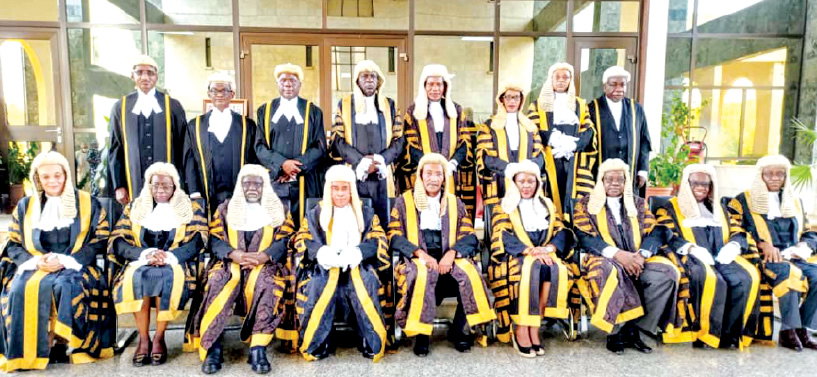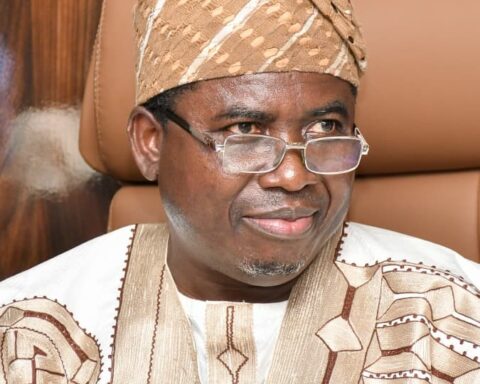Stakeholders in Nigeria’s criminal justice system have advised state governors to be decisive in execution of condemned prisoners rather than continue to torture them in prison.
In a survey conducted by a source on the failure to sign death warrants of condemned prisoners since the advent of civilian government in 1999, the stakeholders attributed the governors’ apathy in this regards to many factors including maintaining political correctness in order not to jeopardize their chances for re-election.
Some of the respondents, in separate interviews in Ogun, Oyo and Kwara states, also identified the dearth of professional hangmen or executioners for the high number of condemned persons languishing in the country’s Correctional Centres.
Mr Musibau Adetunbi, a Senior Advocate of Nigeria (SAN), said that keeping convicted persons perpetually on death row was inhuman.
Adetunbi said that being kept on death row was mental torture for such a convict, hence it was necessary for governors to either sign their death warrants or convert it to life imprisonment.
“The moment the death sentence has been confirmed by the Supreme Court, every governor should be able to take a decision.
“Under the law, we have prerogative of mercy, which means that if you are not signing the death warrant, they can recommend to the governor to convert it to life imprisonment or outright pardon.
“Every governor should be able to take a decision on whether to sign the death warrant, pardon or convert to imprisonment, but it is unfair and inhuman to just keep people on death row,”Adetunbi said.
The lawyer said it would be improper to abolish the death sentence considering the way and manner some people commit crime in Nigeria.
He, however, suggested that the National Assembly could amend the constitution to replace death sentence to life imprisonment since the governors were unwilling to sign the death warrants.
Also, Mr Mutalubi Adebayo Ojo, a former Attorney-General and Commissioner for Justice in Oyo State, argued that it would not be in the best interest of Nigeria to abolish the death sentence cònsidering the various happenings in the society.
Ojo, a Senior Advocate of Nigeria (SAN), said that the death sentence was no longer applicable in some parts of the world and this may be why governors in Nigeria were not signing death warrants anymore.
“The only governor who I can remember signed one in the current democratic dispensation was Adam Oshiomole, when he was the governor of Edo.
“That action sparked a huge criticism from Nigerians, who condemned the pronouncement.
“In deciding whether the death sentence should be abolished or not, there must be stakeholders’ dialogue on weighing our options, that is, the advantage or disadvantage therein.
“On this issue, we don’t have to look at whether it is still fashionable at the world stage or not.
“Our decision on it must be based on what we face as a nation.
“For me, the death sentence should not be abolished based on our peculiar circumstance, there is crime everywhere and it must be dealt with,” he said.
However, Prof. Oludayo Tade, President, Nigeria Society for Criminology (NSC), attributed some governors refusal to sign death warrants to their belief in the sanctity of life and contention that every individual should be allowed to live out their natural lifespan.
“Once a dangerous offender has been removed from society through incarceration, some governors feel it is unnecessary and even excessive to proceed with execution”.
A source said that it was important to allow the legal process to be fully exhausted before any death warrant was signed.
“A death sentence may begin at the High Court, but could be overturned at the Court of Appeal or the Supreme Court, hence signing a death warrant prematurely, before all legal avenues have been exhausted, could amount to justice denied”.
On the deterrent effect of capital punishment, Tade recalled the military era when public executions were common.
“If we flash back to the military era, executions at places like Polo Ground or Bar Beach were openly displayed. Yet, in our democratic system, it has become more complex”.
The criminologist further listed some factors that could act as constraints to a governor’s signing of death warrants such as the calibre of the convict, their social connections, and the lack of trained executioners.
“Depending on the crime committed, there are those who believe anyone can show signs of positive change after going through the correctional process.
“Such individuals may even be granted pardon eventually, “he noted.
According to him, the issue is not the ineffectiveness of the law itself, but rather the lack of enforcement and human commitment to drive the process.
“The law will not enforce itself. If those responsible for its implementation are not committed, it becomes ineffective.
“The problem is not about reviewing or abolishing the law, but about understanding why we have capital punishment and on the offences to which it should applied”.
He also drew attention to perceived injustices within the justice system, particularly in corruption cases.
“People have argued: why not introduce capital punishment for those who have corruptly enriched themselves with the collective wealth of the nation?
“For example, someone who embezzles pension funds and deprives thousands of retirees of their livelihood can cause as much harm as a violent criminal.
“Yet, such individuals often get away with paying a small percentage of what they stole through plea bargains and even receive pardons” .
Also, a former Attorney General and Commissioner for Justice in Kwara State, Mr Salman Jawondo (SAN) has attributed the high number of condemned prisoners on death row to the scarcity of hangmen.
The former commissioner explained that nobody wants to be a hangman anymore in Nigeria.
Besides, Jawondo said that the legal process has made provision that anybody that is condemned to death has automatic right of Appeal up to the Supreme Courts.
He cited the recent case of AbdulRahman Bello who was found guilty of killing a final year student of the Kwara State College of Education, llorin, Hafsat, saying that the governor will not sign any death warrant while an appeal is pending.
He also cited the case of Bello vs Oyo State Government, where the condemned convict was executed and the family sued the governor.
According to him, Oyo State was asked to pay restitution to the family of Bello, because it had irreversibly truncated his right of appeal.
“So no governor will sign a death warrant immediately somebody is condemned because by the provision of the Constitution, a person condemned has a right to appeal within three months.
“The Correctional system in Nigeria is not for vengeance. The target of the Correctional provision is for reformation.
“It is not to take revenge, but to make people know that there are consequences for their actions”.
Jawondo explained further that the system allows for a condemned convict to remain in prison subject to good behaviour.
“After some time, his sentence may be committed to life imprisonment.
“It is considered that instead of wasting life, ‘blood upon blood’, it is better to reform the individual.
“So if you spend some years in the Correctional Service and you are recommended for good behaviour, the death sentence can be reduced to life improvement”.
Similarly, Prof. Abideen Olaiya, a lecturer at the Federal University of Agriculture, Abeokuta, said majority of the governors in Nigeria fail to sign the death warrant because they were not fully prepared for governance.
Olaiya said that one of the major duties of governors was justice and maintenance of law and order, noting that most governors only focused on resource distribution and revenue generation.
The don said that the only way to establish justice in any community was to completely remove from the society whoever commits a violent crime as attested to by the Quran, Bible and local beliefs.
“Whoever is involved in any violent crime to the extent of killing a human being without any just cause should be killed”.
Olaiya berated governors for not signing the death warrants on their desks and blamed this for the rise in violent crimes in Nigeria.
He said that abolishing or repealing the law on the death sentence would encourage and worsen criminality in Nigeria.
“We must put pressure on the governors rather than looking at the direction of repealing the death sentence



























